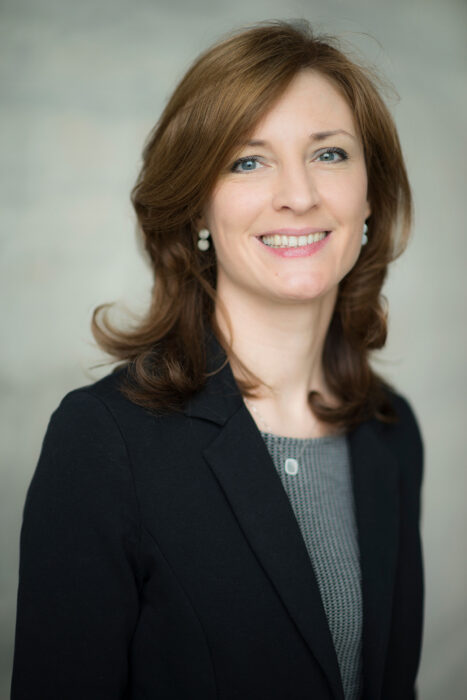
On Monday 20th November at 11AM (GMT) Professor Paola Picotti will deliver the 2023 Perutz lecture, ‘Decoding the protein dance’. Paola’s lecture will be delivered in the LMB Max Perutz Lecture Theatre and is open to all within the local area. If you are not at a member of the LMB and wish to attend this seminar, please contact the seminar secretary.
Paola Picotti has been the Deputy Head and Professor for Molecular Systems Biology, Institute of Molecular Systems Biology at ETH Zurich, Switzerland since 2017. Before she began her postdoctoral research at ETH Zurich she obtained both her Master’s degree in Pharmaceutical Chemistry and Technologies in 2001 and then her Ph.D. in Biotechnology in 2006 at the University of Padua in Italy.
Paola is recognised for conceptual and technological breakthroughs in Mass Spectrometry analysis of proteins and proteomes. Her laboratory develops mass spectrometric methods to monitor changes in the structure and function of proteins on a proteome wide scale in biological samples like cells or tissues. These methods are applied to study how protein confirmational changes, such as protein aggregation or allostery, impact cellular physiology and result in human disease.
Paola’s research has been recognised with numerous awards and honours such as EMBO Gold Medal in 2019, Election to the German National Academy of Sciences in 2020, EMBO Membership in 2021, the HUPO Discovery in proteomics award in 2021, the 2020 ETH Zürich Rössler Prize, the ‘Protein Pioneer’ Award from the European Proteome Organisation in 2018 and two ERC grants.
Lecture Abstract
Significant progress has been recently achieved in the prediction of protein structures, due to advances such as AlphaFold, RosettaFold and in general deep-learning based methods. These tools are revolutionising the field of structural biology by providing reliable predictions of protein 3D structures. Despite these developments, predicting protein dynamics remains a formidable challenge due to the inherent complexity of dynamic motions of proteins and the scarcity of experimental data on alternative protein conformational states. Detecting and characterising protein conformational changes on a large scale would be however very relevant as they can profoundly alter protein function and activity.
In my talk, I will present a mass spectrometric method that enables in situ analyses of protein conformational changes for thousands of proteins simultaneously and across conditions. The approach probes dynamic alterations of protein structures due to post-translational modifications, binding of other molecules, cleavages and protein aggregation events. Such a structural ‘omics readout, combined with predicted or experimental protein structural data, enables screening for pathological or physiological protein conformations from cells and tissues, supports the generation of mechanistic hypotheses and bridges system and molecular views. I will present applications of this approach to the in situ detection of drug-target interactions and the identification of a novel class of structural disease biomarkers.
Background information
The Max Perutz lecture is named in honour of LMB Nobel Laureate Max Perutz. It is one of a series of named lectures organised by the LMB and given by eminent scientists from around the world. These talks are supported financially by AstraZeneca and the Max Perutz Fund.
Max Perutz first arrived in Cambridge in 1936 as a research student to study X-ray crystallography at the Cavendish Laboratory under J. D. Bernal. He soon became a world leader in the field of molecular biology, developing a novel technique to determine the structure of proteins. Max is a central figure in the LMB’s history: he was the first Director of the ‘MRC Unit for Research on the Molecular Structure of Biological Systems’ upon its establishment in 1947, and became the first Chairman of the unit when it became the MRC Laboratory of Molecular Biology in 1962. In this year, he was also awarded the Nobel Prize in Chemistry jointly with John Kendrew for their studies on protein structures. He remained at the helm of the LMB as the lab grew to be a preeminent research institute, before retiring in 1979. He died on 6 February 2002, aged 87, in Cambridge.
Further references
Paola Picottii’s page
LMB Named Lectures
Max Perutz
Poster for the Lecture